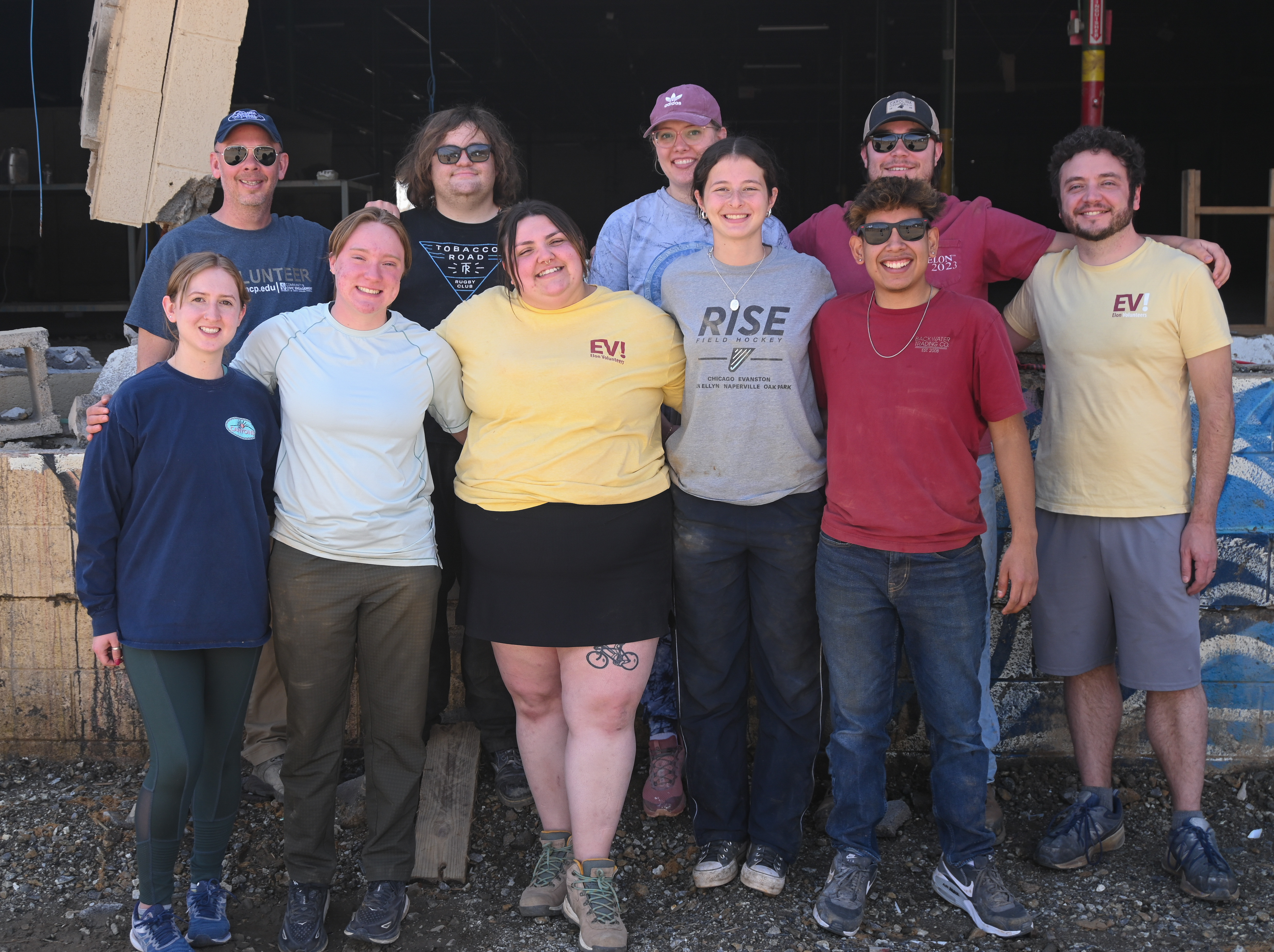The Student Government Association (SGA) and the Kernodle Center for Civic Life collaborated to implement an alternative spring break trip, giving students and staff the opportunity to support disaster relief efforts in western North Carolina for communities impacted by Hurricane Helene.
Sun, sand and beaches. These are the typical images that come to mind when thinking of spring break. However, for six students and five staff members, spring break 2025 looked a little different. Instead of heading to a beach, they traveled to Asheville, North Carolina, to take part in an alternative spring break trip dedicated to helping communities still recovering from the impact of Hurricane Helene.
Hurricane Helene made landfall in western North Carolina in October 2024, bringing severe flooding, damaging homes, businesses and community spaces throughout the region.
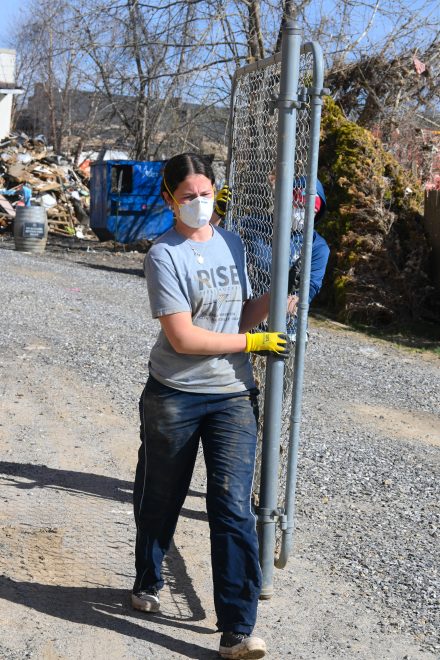
Alternative spring break programs are service experiences designed to introduce students to new communities while addressing domestic and global social issues. The Kernodle Center for Civic Life facilitates these trips in collaboration with a range of community partners. This year, an unlikely collaborator stepped forward when the Student Government Association (SGA), which does not typically fund service trips, recognized the importance of supporting relief efforts. SGA saw it as an opportunity to support community engagement.
“Given that Hurricane Helene impacted our local community and we felt the impact at other universities that we partner with, it was something that we knew pretty quickly that we wanted to help in whatever way we could,” said Connor Vaughn ’26, School of Education senator.
Bob Frigo, director of the Kernodle Center for Civic Life, also emphasized the significance of the partnership. “When Hurricane Helene happened in the fall, SGA really wanted to support efforts in western North Carolina. This collaboration between the Student Government Association and the Kernodle Center for Civic Life is nothing short of monumental.”
As the partnership took shape, planning began. Kyle Anderson, associate director of the Kernodle Center for Civic Life, coordinated the trip efforts. Having previously partnered with Community Collaborations International for disaster relief trips to Texas and Puerto Rico, the Kernodle Center trusted the organization’s expertise to guide the Asheville effort, making the partnership a natural fit for this year’s trip, which led to the partnership with NECHAMA–Jewish Response to Disaster.
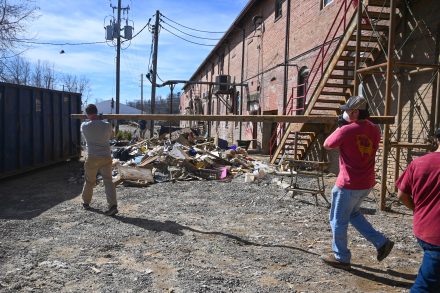
NECHAMA, which means “to comfort” in Hebrew, is a 32-year-old organization based in Minneapolis. It is the only Jewish organization in the U.S. that provides direct disaster response services and welcomes volunteers of all faiths and assists disaster survivors regardless of religious affiliation. In Asheville, NECHAMA connected Elon students and staff with community projects, including restoring the home of an elderly couple and assisting with cleanup at Riverside Studios in the city’s River Arts District, which houses the studios of over 70 local artists.
Service as a tool for learning and connection
Through hands-on service and meaningful interactions, students gained a deeper understanding of the lasting effects of natural disasters—and the importance of showing up to help. The Asheville trip was one of four alternative breaks during spring break, alongside trips to Charleston, Savannah and Costa Rica.
These experiences reflect Elon’s commitment to helping students grow as global citizens through service and community engagement while also fulfilling one of the five Elon Experiences: service.
“Service is a pathway to open and honest conversation. It can be tangible things like showing up and doing the work… but also listening to stories and understanding what partners truly need.”
-Abby Wiatrek, assistant director of the Kernodle Center for Civic Life
“Students are learning about local and global issues, how to embed themselves in a community, and to understand the cultures present in those communities,” said Frigo.
Anderson echoed those insights.
“It’s the importance of being a good neighbor, getting to know people who are different from you, seeing where they need help, and stepping into that space with humility,” Anderson said.
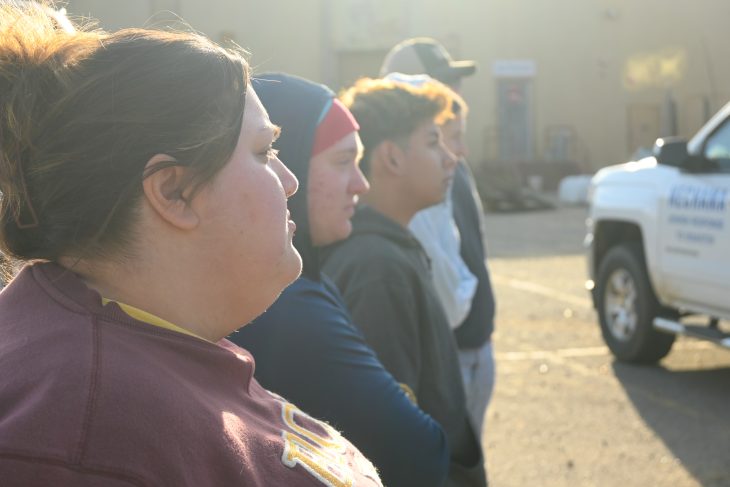
Reflection and growth
In addition to their service, students also spent time considering the personal impact of the experience and what it meant for their growth as global citizens.
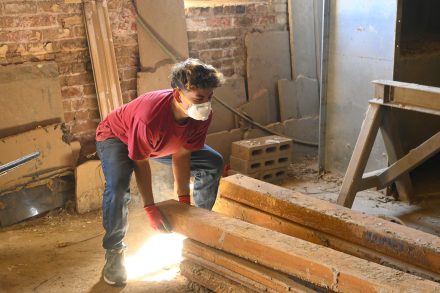
“A big part of being a global citizen is empathy and being able to connect with others,” Vaughn said. “Being with these people as they’re trying to rebuild without a doubt builds your capacity for empathy.”
Ruby Radis ’26 also shared how the trip aligned with her understanding of global citizenship.
“A global citizen is understanding your role on this planet, and understanding that we all have an impact and a duty to our other citizens, our other community, which is a global thing,” Radis expressed. “It starts local and then builds its way up to be a global citizen. Living in North Carolina for the past three years, I think this adds to my part as being a global citizen, as the duty to work together and build a safer and stronger community.”
Many students also expressed a renewed mission for service, broader perspectives and an enhanced understanding of how their actions could support communities beyond Elon.
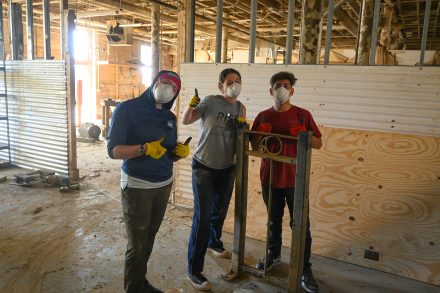
Joseph Neclerio ’28 shared that service has always been part of his life.
“My dad instilled in me the importance of having a heart for service and giving back,” he said. “When I saw the damage in Asheville, I wanted to make a difference. I might not be able to clean up all of Asheville, but I’m able to do a small portion.”
Coby Fecher ’25 also had a personal connection to someone impacted by the hurricane, motivating them to join the trip. But the experience offered more than just a chance to serve. During the experience, Fecher discovered a calling that could shape their path after graduation.
“I’ve been thinking ever since yesterday, when we were sanding and mudding, that I may want to start doing this as kind of a career, maybe helping out, doing Habitat for Humanity, or working with our partner here,” Fecher shared.
For Kai Barker ’27, the trip offered perspective.
“I’ve never been through a natural disaster,” Barker said. “It showed me what people are going through on a real, everyday level. Perspective helps you grow and develop empathy for others.”
Staff reflections
Staff members also found personal meaning and connection during the trip.
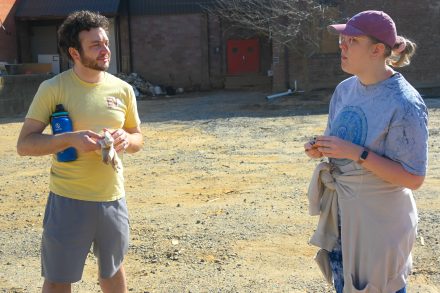
Charlotte Grush, coordinator of donor relations, grew up in the Asheville area.
“It hits very close to home, seeing some of the pottery pieces and all of that [while cleaning up],” she said. “Working with students in this capacity is great. I don’t usually get to put names and faces together. The trip gave me that chance to get to know students, their passions and goals, and learn how I can kind of help facilitate that throughout the trip.”
Alice Chesley-Akhtar, AmeriCorps VISTA Leader at NC Campus Engagement, joined the trip to deepen her service year and connect with Elon students.
“A big takeaway for me is that the students really want to help out, and they have a heart of gold,” she shared. “They want to use that to better the area and help out with these natural disasters.”
Building more than homes
Ultimately, the trip left a lasting impact—not only on the students and staff, but also on the Asheville community, illustrating the power of service, partnership and engagement.
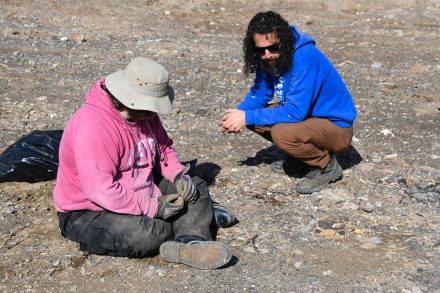
“I hear every day from homeowners that what they’re getting the most out of this experience is hope for the future by seeing young people who still want to engage in service to their world,” said Rami Schwartzer, Hurricane Helene Team Lead at NECHAMA. “Just seeing people who are growing and learning and still thinking outwardly, that’s something that brings homeowners gratitude and hope every day.”
The trip wasn’t just about rebuilding homes, it was about building empathy, community and a stronger sense of purpose.



